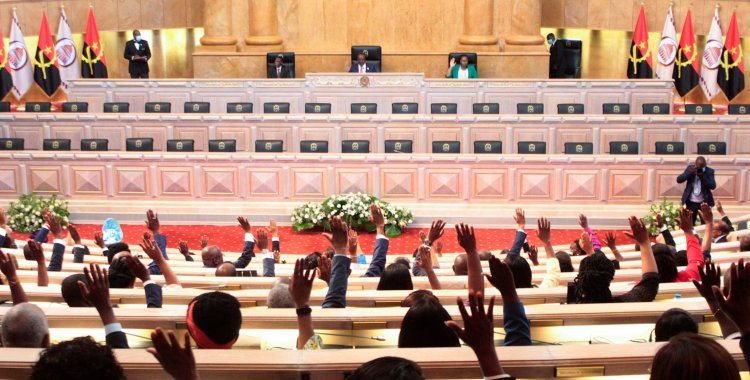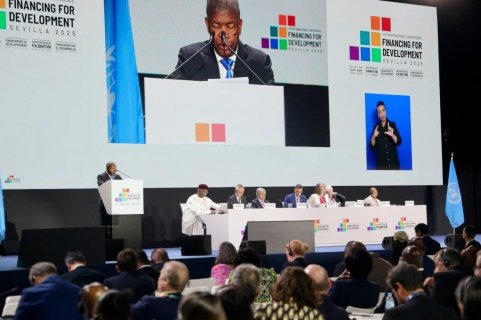“We will invite the President of the National Assembly to repair the mistakes made and restore legality in the next eight days. After all, the motto of national politics 'is to correct what is wrong'", said the leader of the parliamentary group of the National Union for the Total Independence of Angola (UNITA), Liberty Chiaka.
At issue is the lead, last Saturday, by the parliamentary group of the Popular Movement for the Liberation of Angola (MPLA), of the proposed initiative for the prosecution and dismissal process of the President of the Republic, João Lourenço, which UNITA considered a null act for violating the legal provisions on the convening of collegial meetings.
“If the President of the National Assembly maintains a posture of violation, in compliance with orders from above, we will appeal to the Constitutional Court to declare the nullity of the aforementioned meeting”, stated Liberty Chiaka at a press conference.
The president of the UNITA parliamentary group highlighted that the meeting did not fulfill its purpose and was not held in accordance with the law, considering that there was an act of sabotage, as there was no proposal to create the Eventual Committee, as mentioned in the call notice .
“It was held in the multipurpose room, which is unusual, outside the public scrutiny of the people, behind closed doors, when it should have been held in full view of everyone, because the plenary meetings of the National Assembly are public”, he stressed.
Liberty Chiaka highlighted that the Rules of Procedure of the National Assembly state that there may be an appeal to the president of parliament or to the plenary of the National Assembly.
“In this case, the question of appealing to the plenary does not arise, the question requires that, once the proposal is received, the president has to call the extraordinary plenary session, it is a matter of obligation, she must make amends”, he added.
In the event of a withdrawal from Saturday's deliberation, continued Liberty Chiaka, an extraordinary meeting will be called, "strictly observing what is established by law", which requires, firstly, the distribution of the document, both to parliamentary groups and committees.
“The first committee, which is the competent committee, must prepare an opinion report and the respective draft resolution, which will be discussed at the extraordinary plenary meeting, in which the constitution of the Eventual Committee will be voted on,” she said.
According to Liberty Chiaka, the regulations determine that the National Assembly creates an Occasional Commission, without raising the possibility that it will not be created, through a secret vote.
“We assume that at first the secret vote does not produce an absolute majority, there is a second vote, let's assume that the second vote does not bring an absolute majority, we are left with a simple majority, there is a third vote, while the commission is not created the process and Voting doesn’t end, that’s what the doctrine says, that’s what the law says to do”, he explained.
“The commission will be created, let it be the final deliberation that requires a qualified majority of two thirds to say no to the dismissal process, if that is the case, we accept it, but we are aware that it will not be that, the regime is aware of it so it has fear of MPLA deputies”, he highlighted.
On Saturday, MPLA deputy João de Almeida Martins accused UNITA of resorting to “trickery”, which, after announcing that it would propose the President's dismissal in July, was “simulating the involvement of civil society” and “managing this element” to present the initiative on the eve of the opening of the new parliamentary year.
“She did it on purpose”, accused Jú Martins, stating that the president of the National Assembly complied with the rules and summoned the permanent commission to consider the matter, as was her responsibility.
“The proposal was received and it was necessary to evaluate (…) the process was prepared and exhausted, the initiative was received, the eventual commission was rejected, the process was over”, declared the MPLA deputy at the time.







